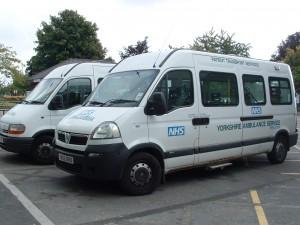Leaving hospital
At Barnsley Hospital we make sure that you are ready to go home at the earliest opportunity, provided you are well enough, and have everything you need to recover fully.

During your stay, an assessment team works together to consider your medical, social and environmental needs. This could mean you are free to go home or you may require other routes of care outside the hospital such as:
- outpatient appointments
- intermediate care – for example visits from a nurse or occupational therapist
- carer support
- equipment or accommodation alterations for home treatment
- care at a specialist hospital
- residential or nursing care
We will discuss your discharge with you to make sure you have all the support, equipment and medication you need, We will give you the opportunity to ask any questions you may have.
If you are claiming sickness benefit, don’t forget to ask for a certificate of discharge to prove your entitlement(s).
Talking to your GP
When you are discharged from hospital, your GP will receive a letter to notify them.
This letter will contain:
- details about your admission and why you came to hospital
- what treatment you received
- details about any new or changes to your existing medication
You can also request a copy of this letter for your own records. A copy can be requested from the receptionist of the ward or department you stayed at, or from your GP.
After you’ve left hospital
If you have any further concerns about your condition or treatment once you have been discharged, book an appointment with your GP in the first instance. You can also contact NHS 111 online or via calling 111.
You should only contact 999 or come to A & E, in an emergency
What is "Discharge to assess" (D2A)?
Discharge to assess (D2A) is about funding and supporting people to leave hospital, when safe and appropriate to do so, and continuing their care and assessment out of hospital. They can then be assessed for their longer-term needs in the right place.
For older people in particular, longer stays in hospital can lead to worse outcomes and can increase their long term healthcare needs.
When people no longer need to be in hospital and are medically fit for discharge, but may still require some aspects of care, services are provided with short-term funded support so people can be discharged to their own home.
Local care services will be involved in assessing someone's care needs once they have returned home.
